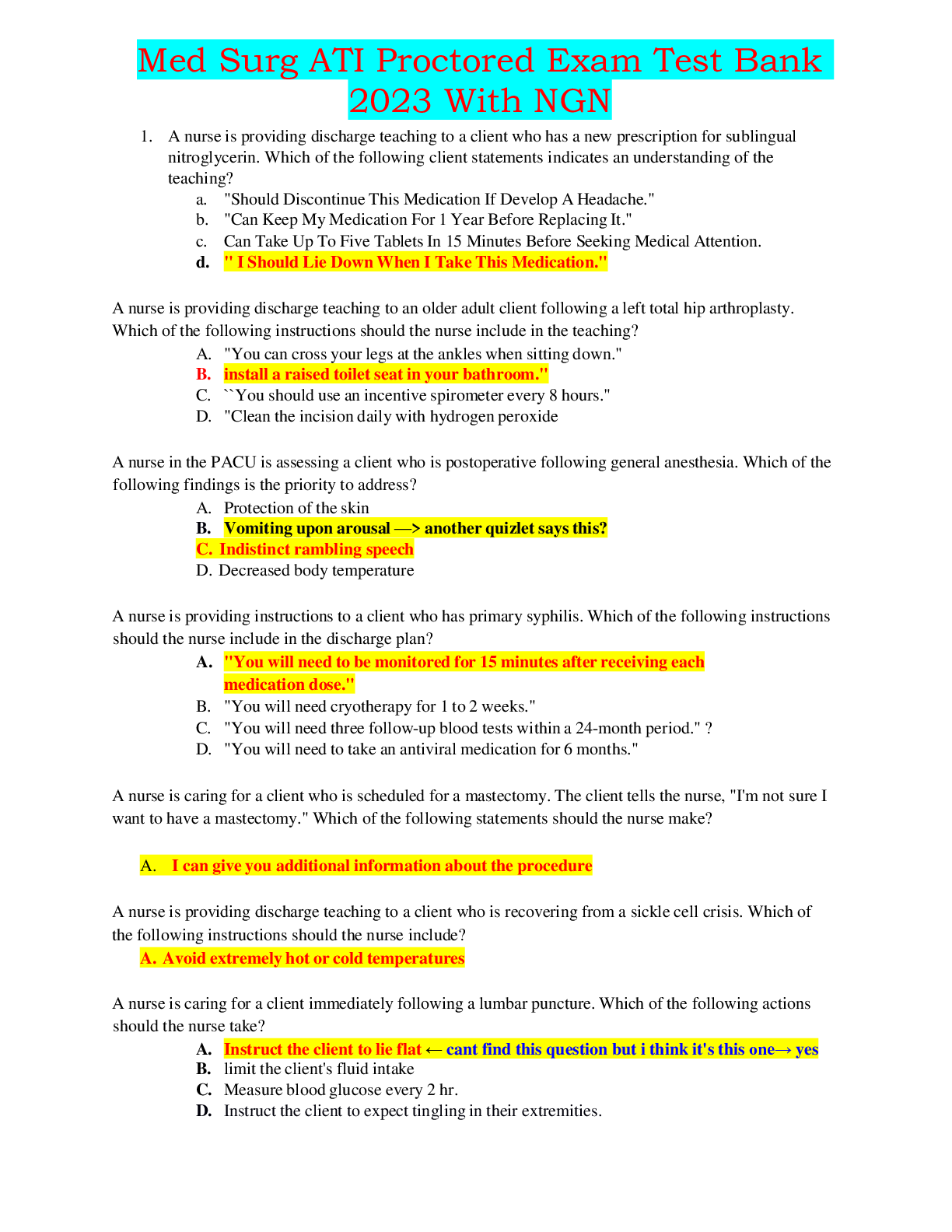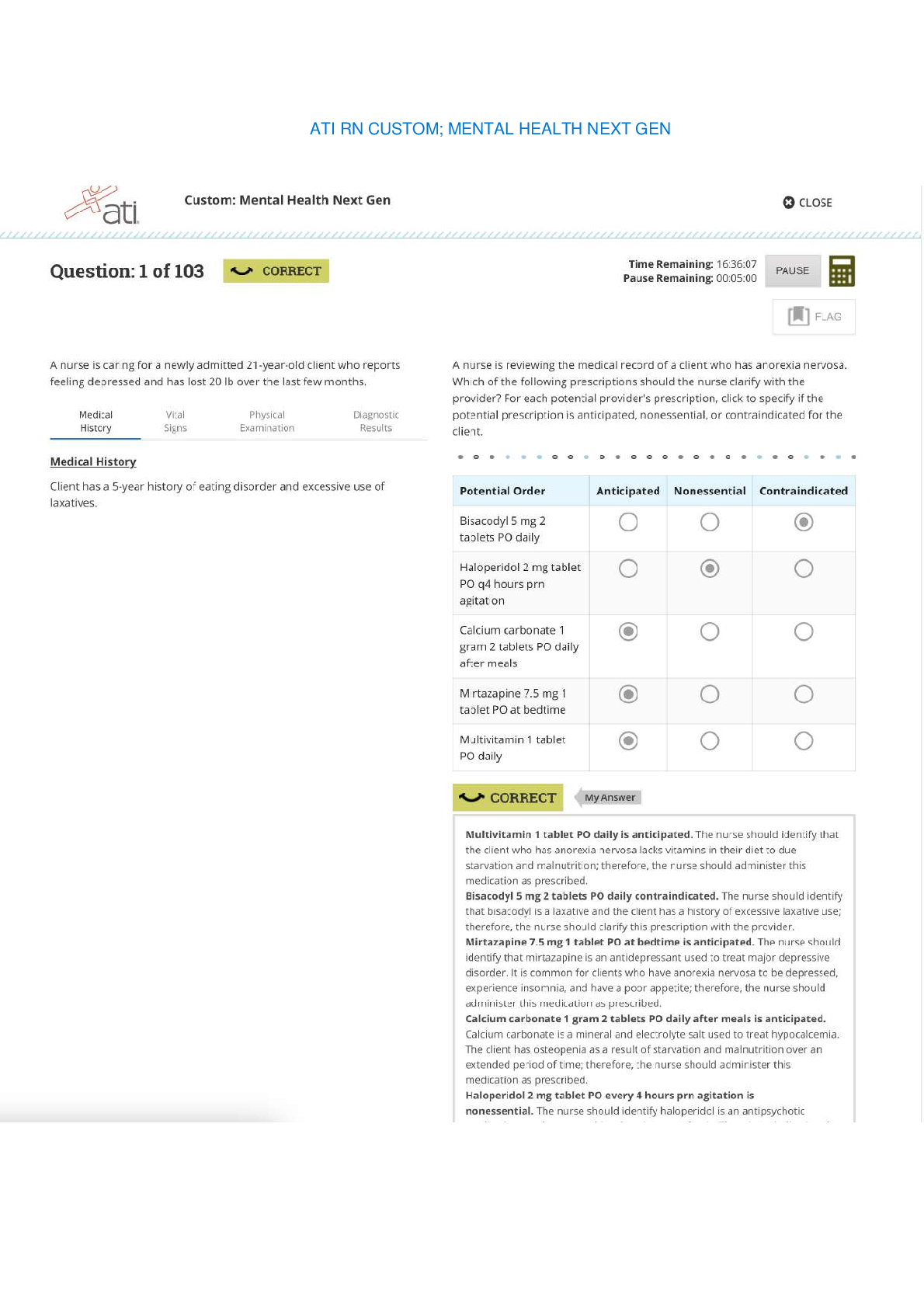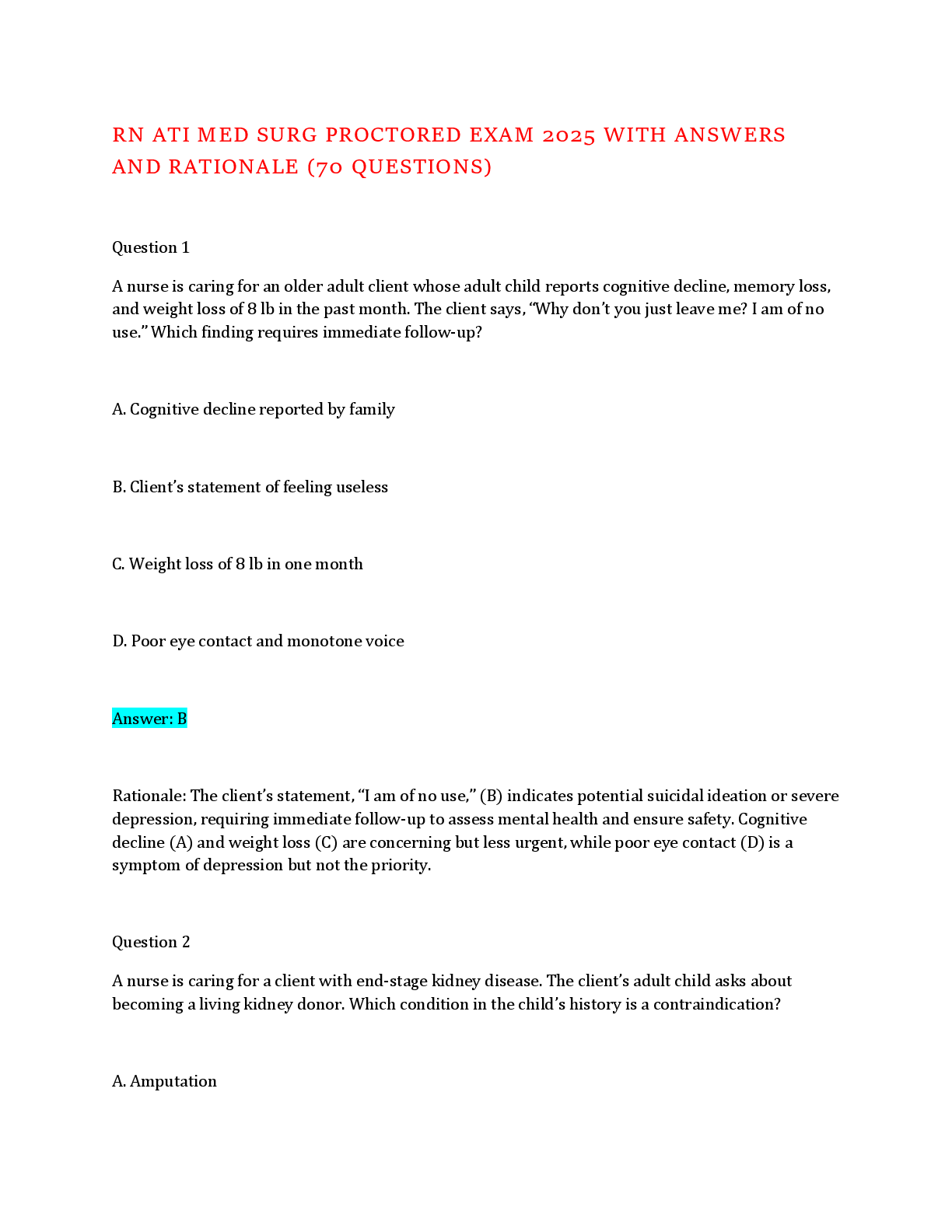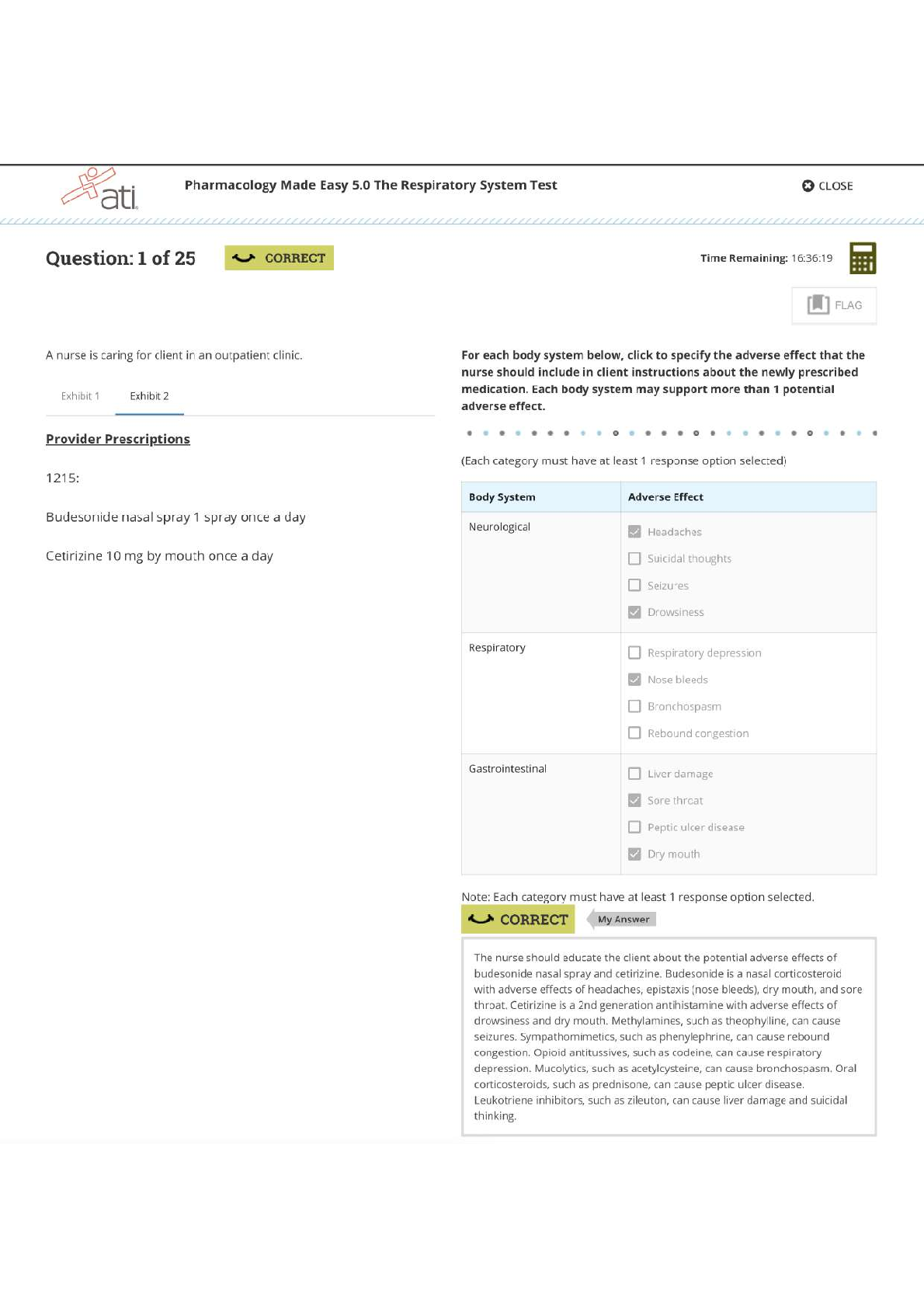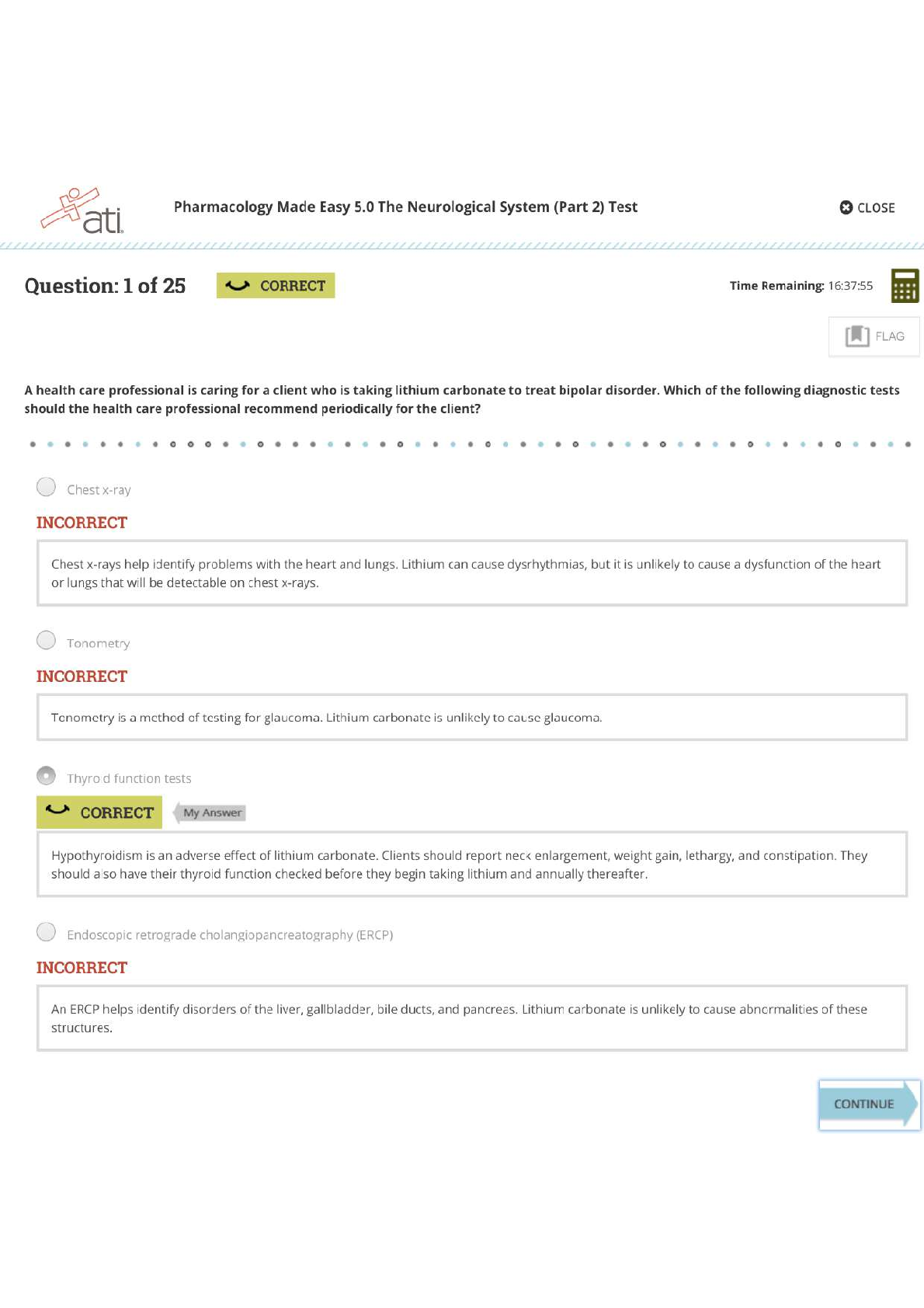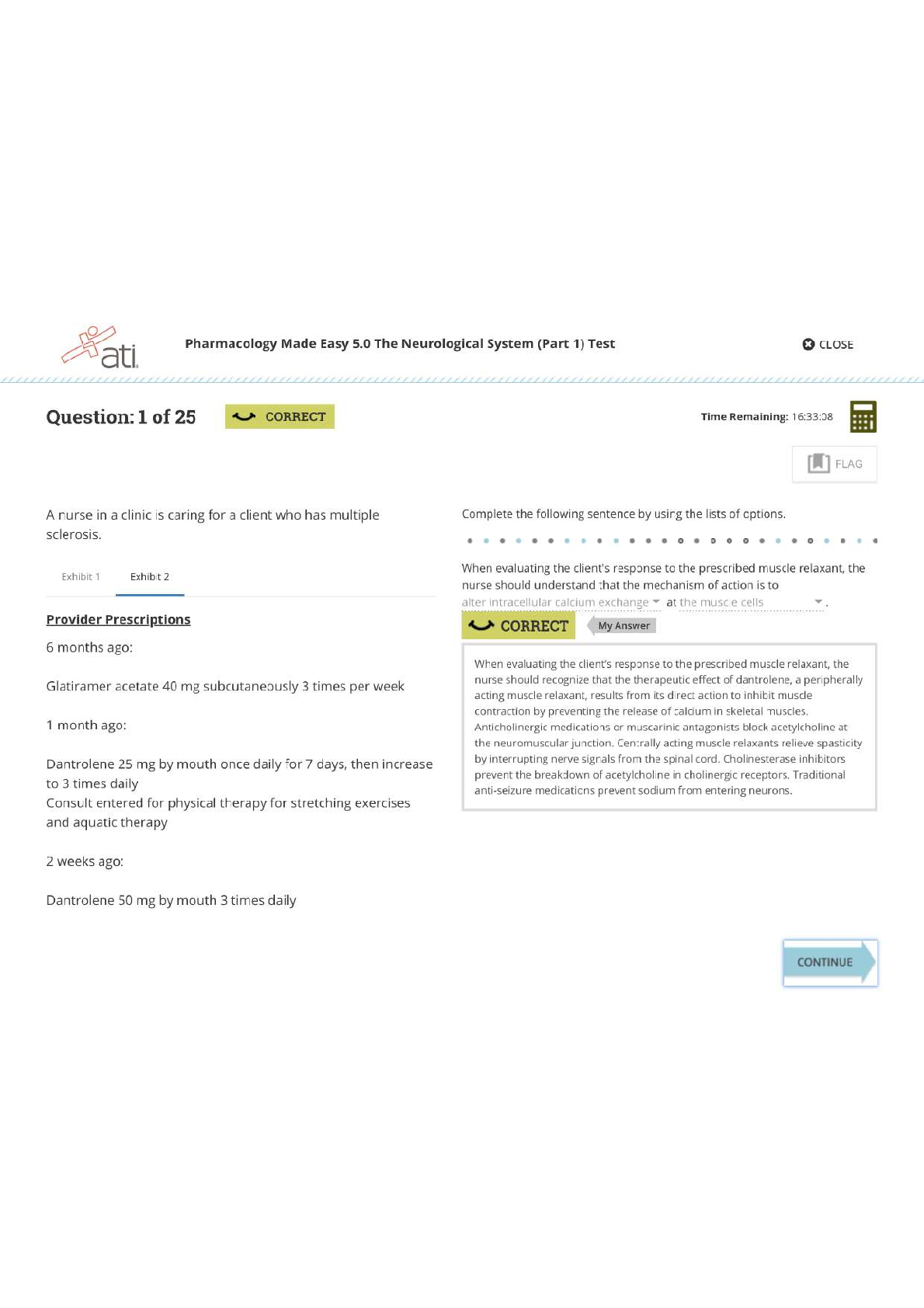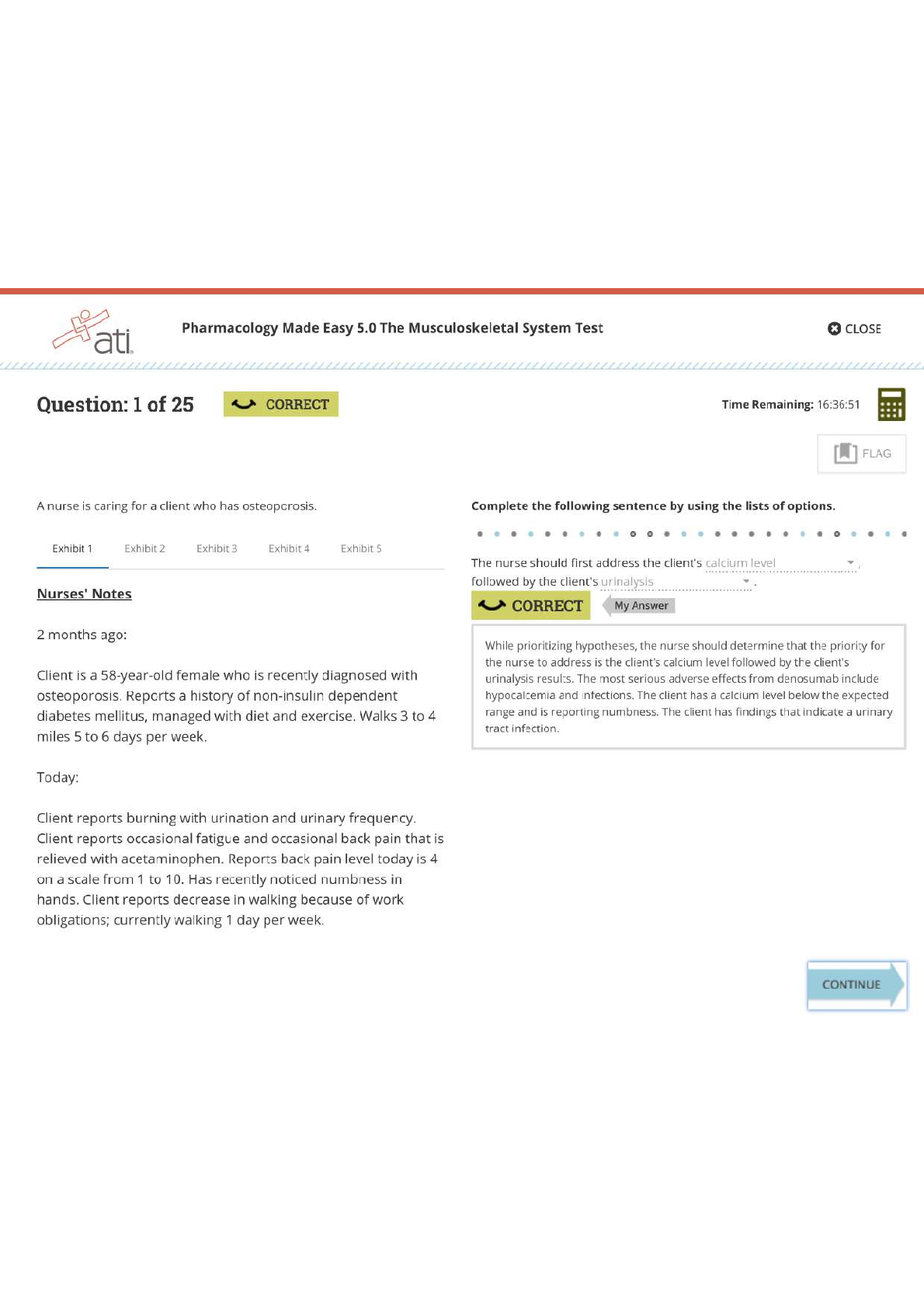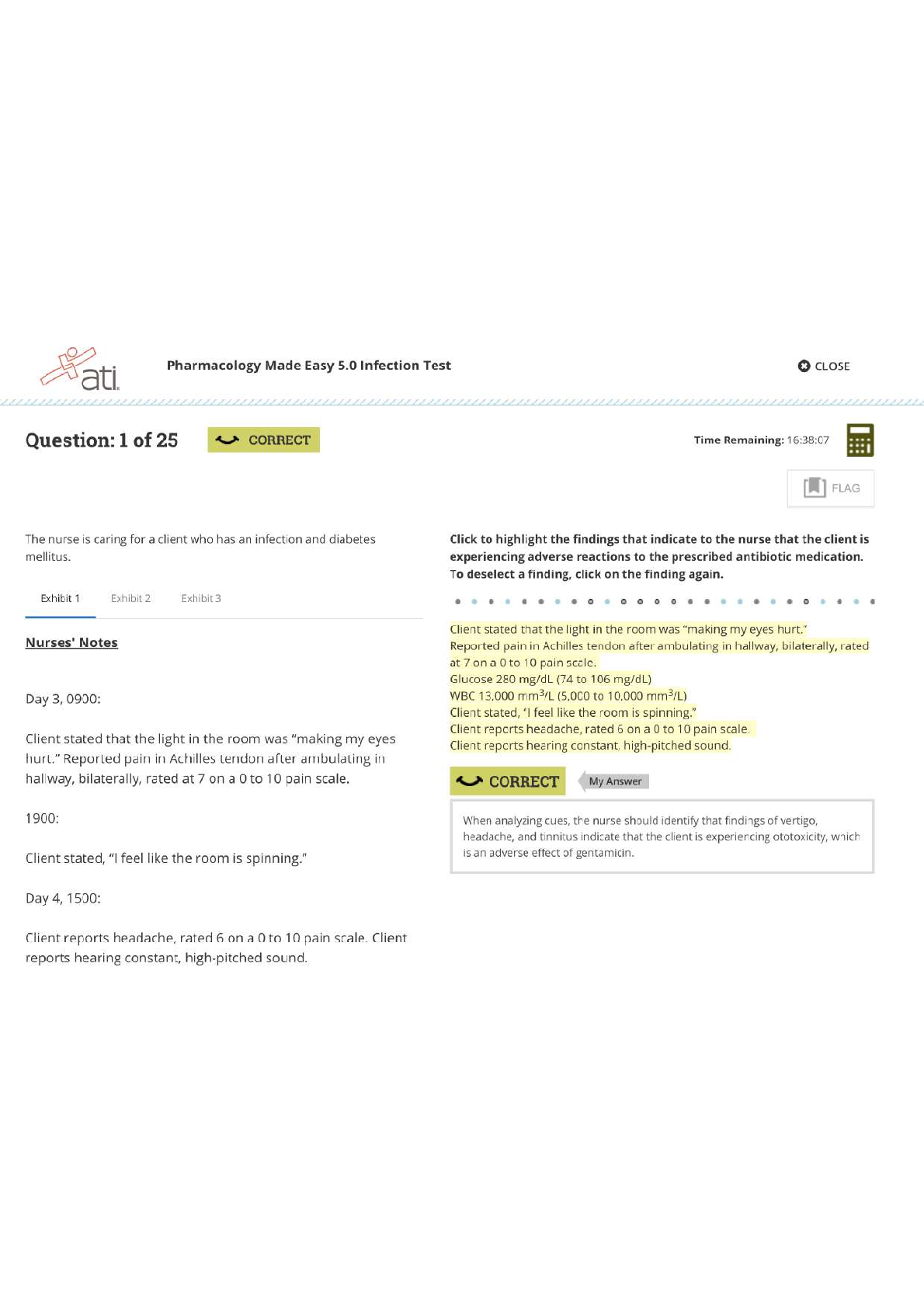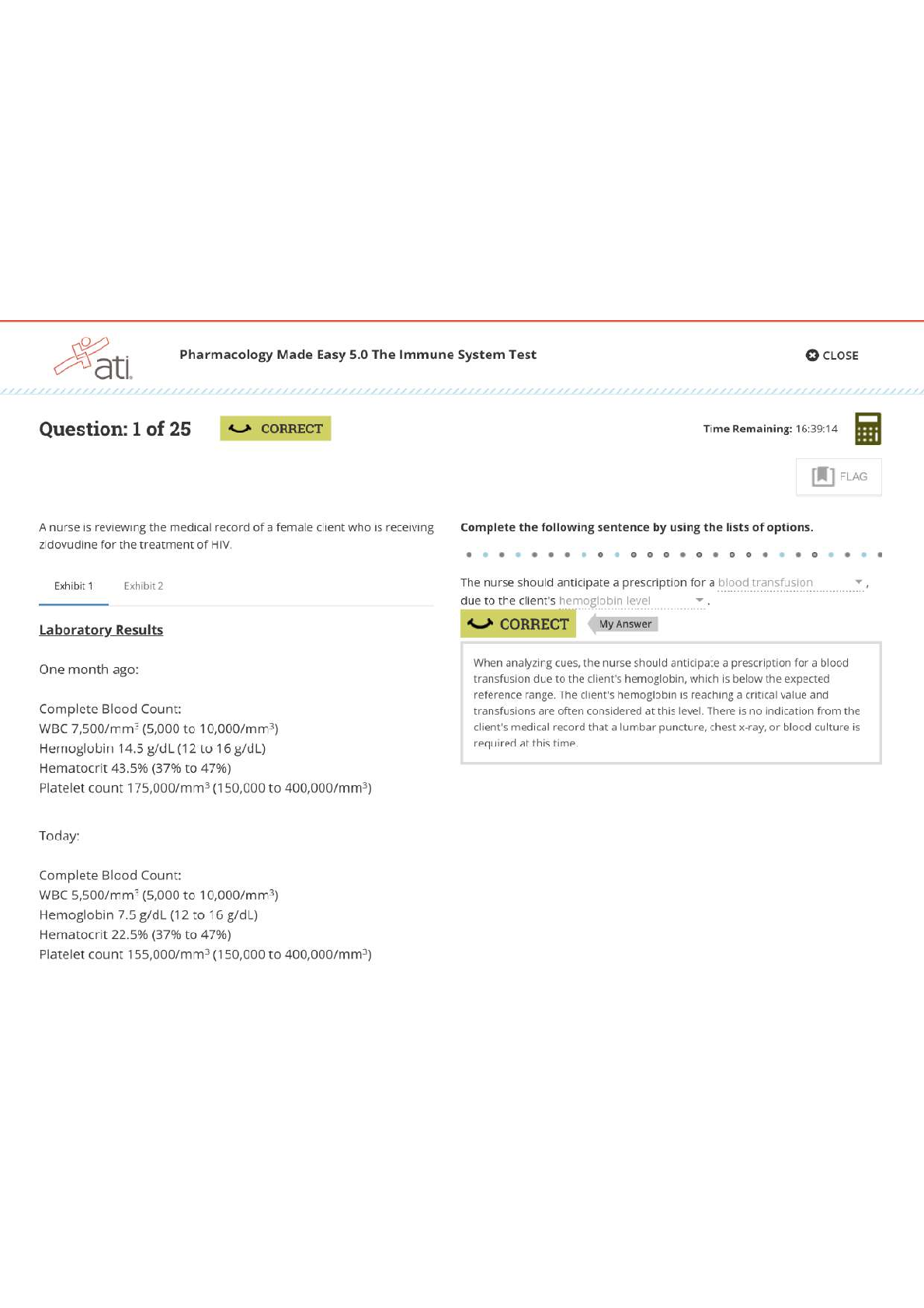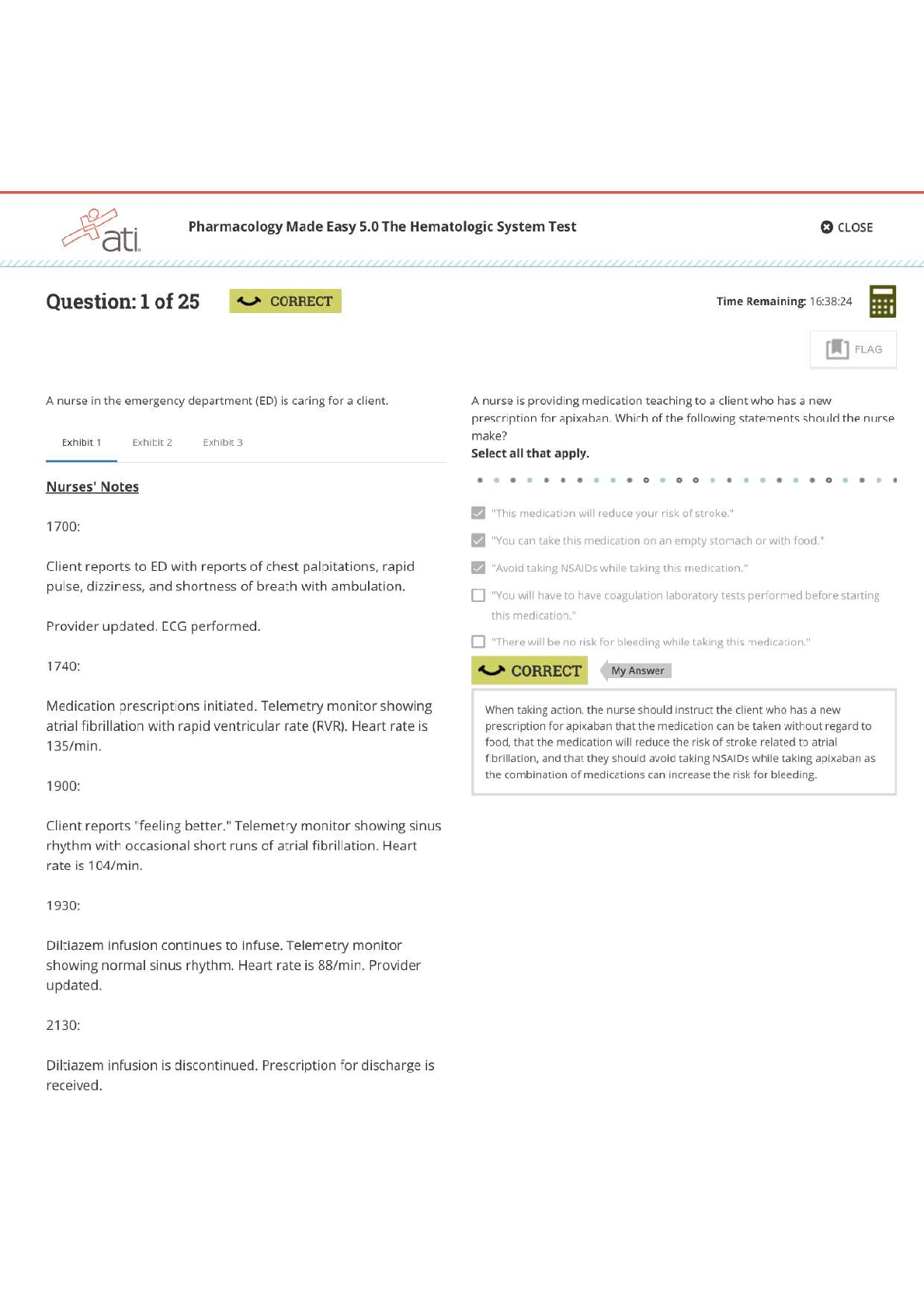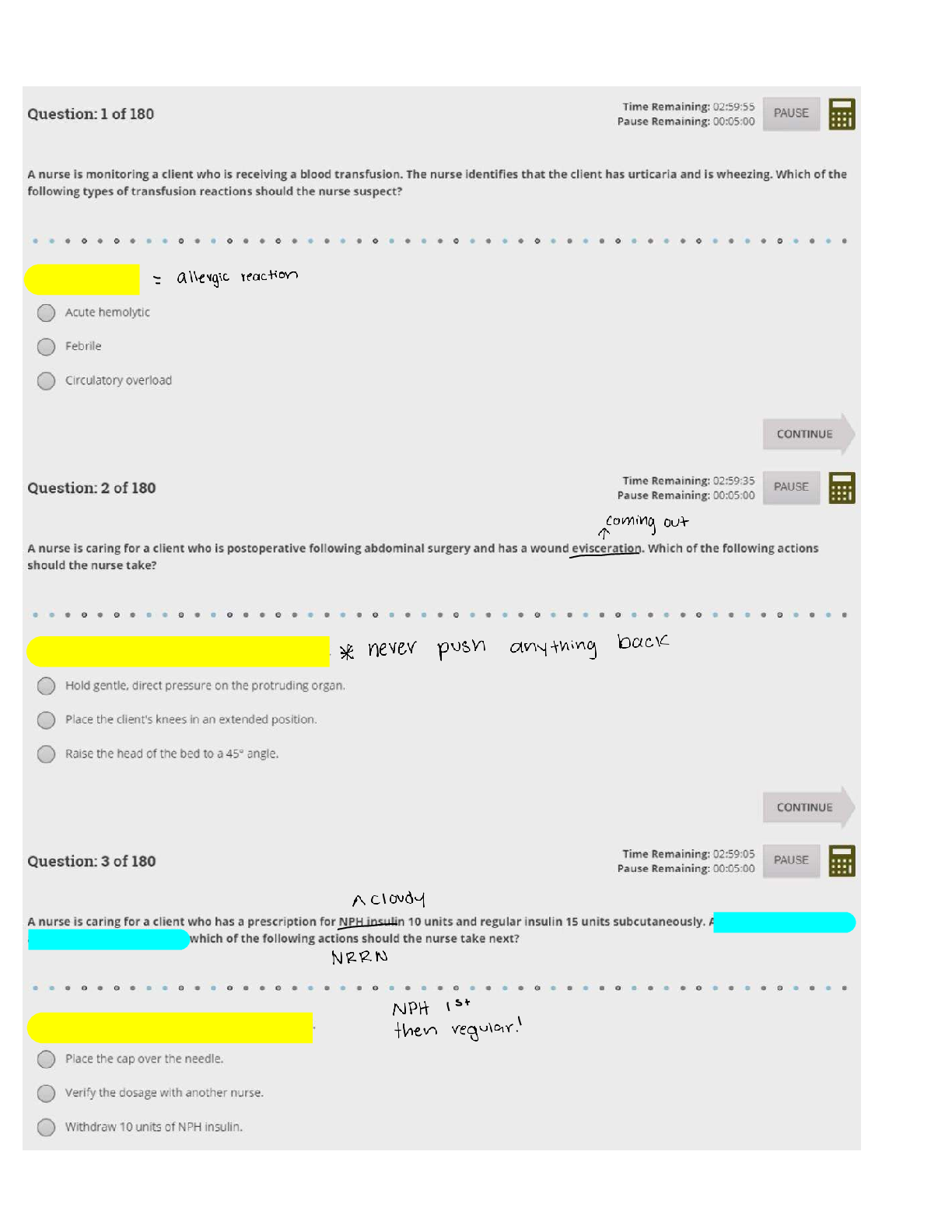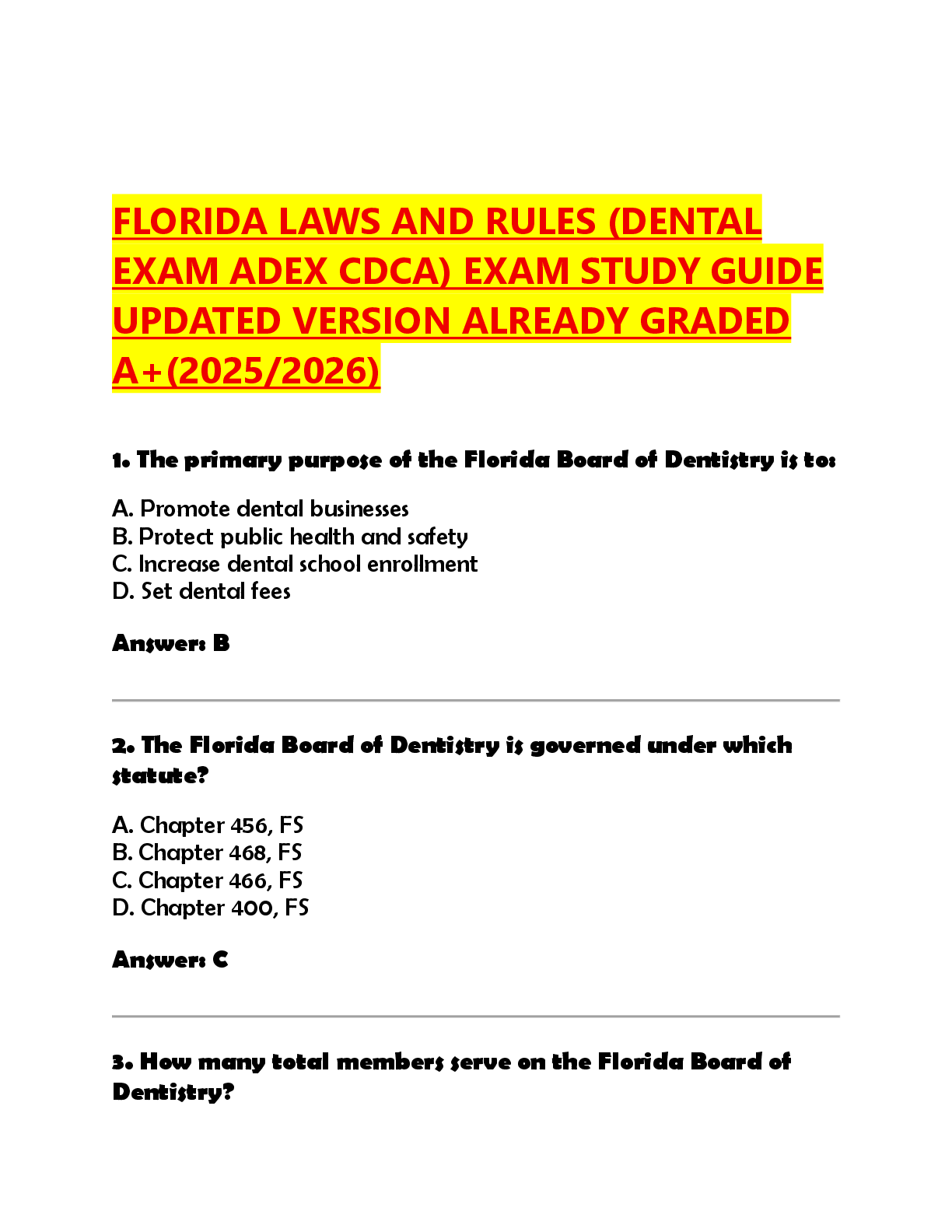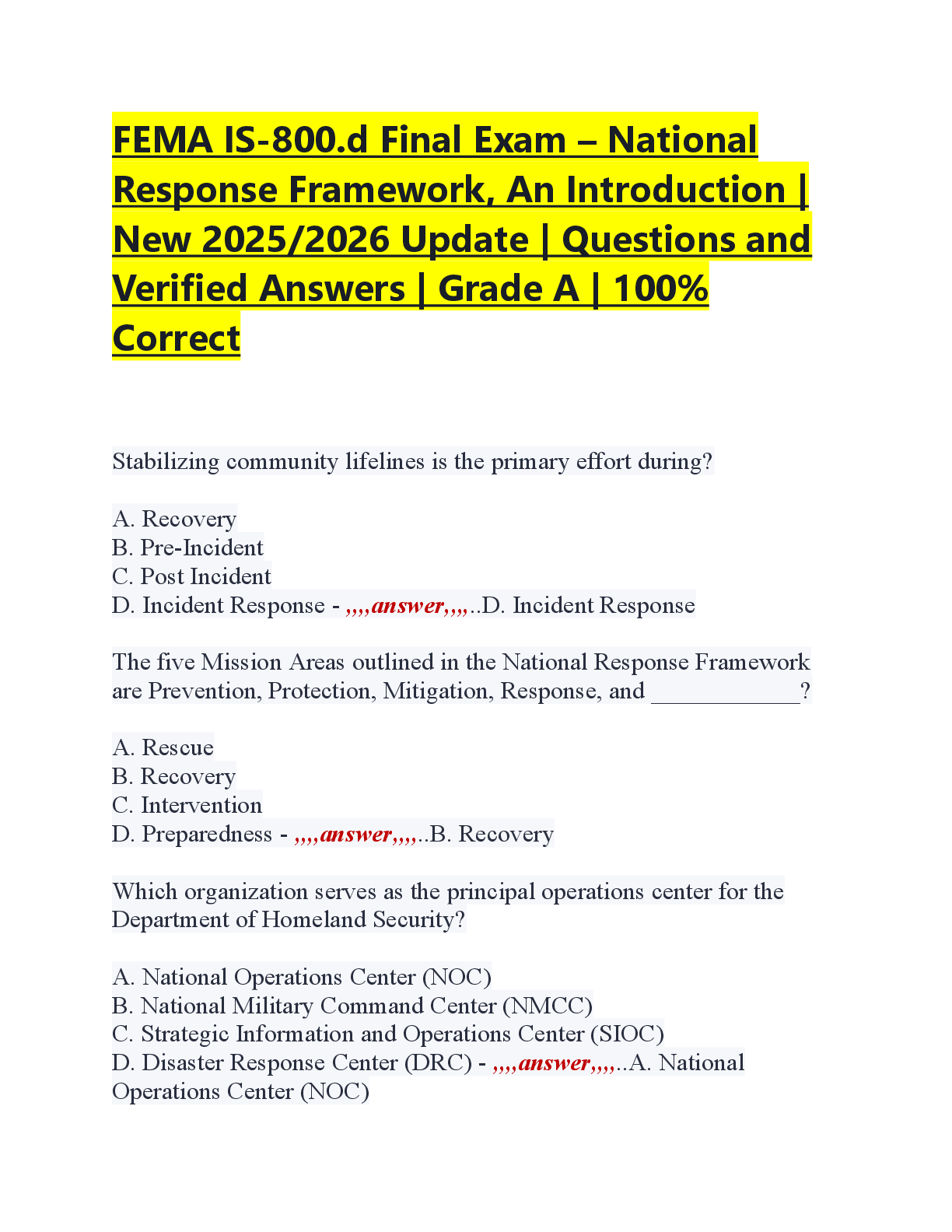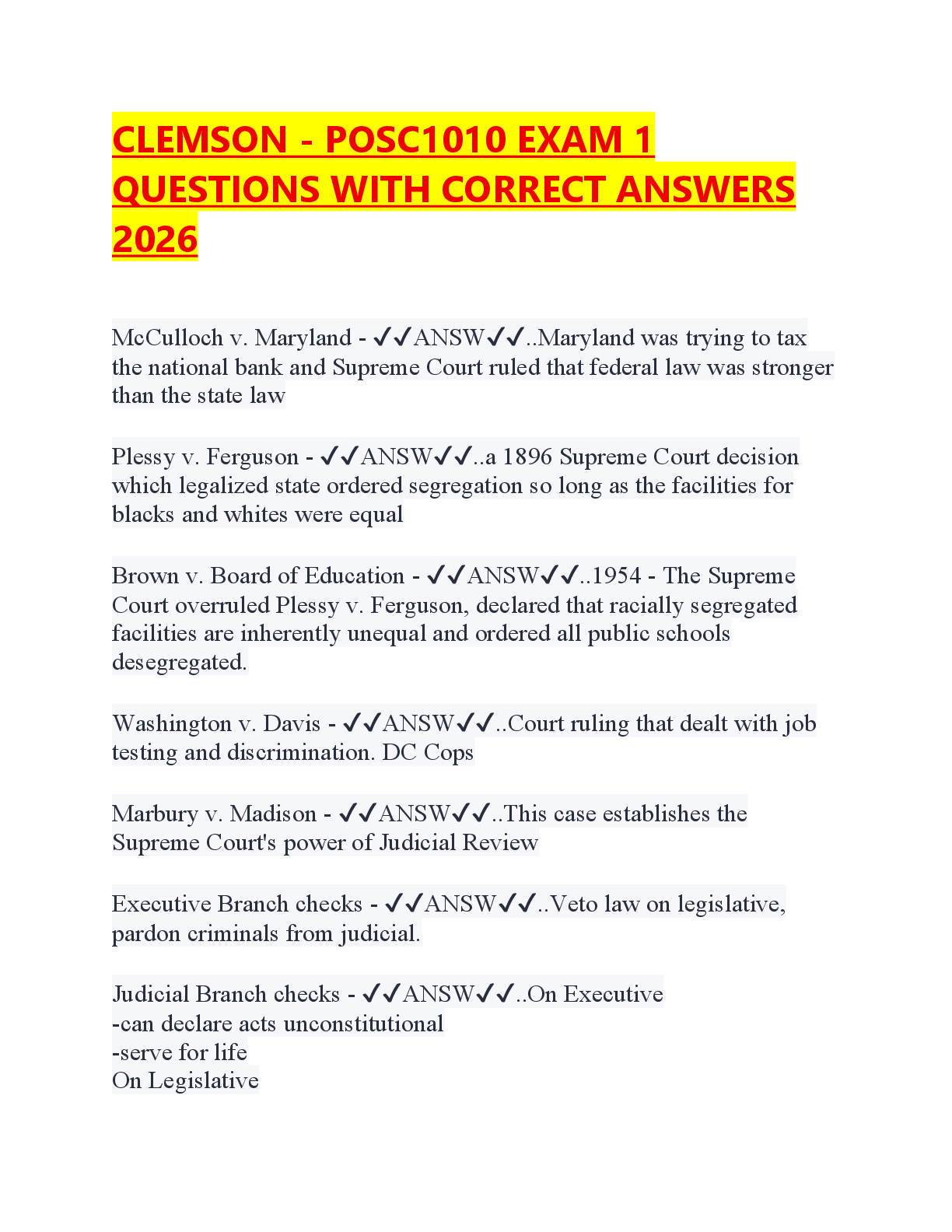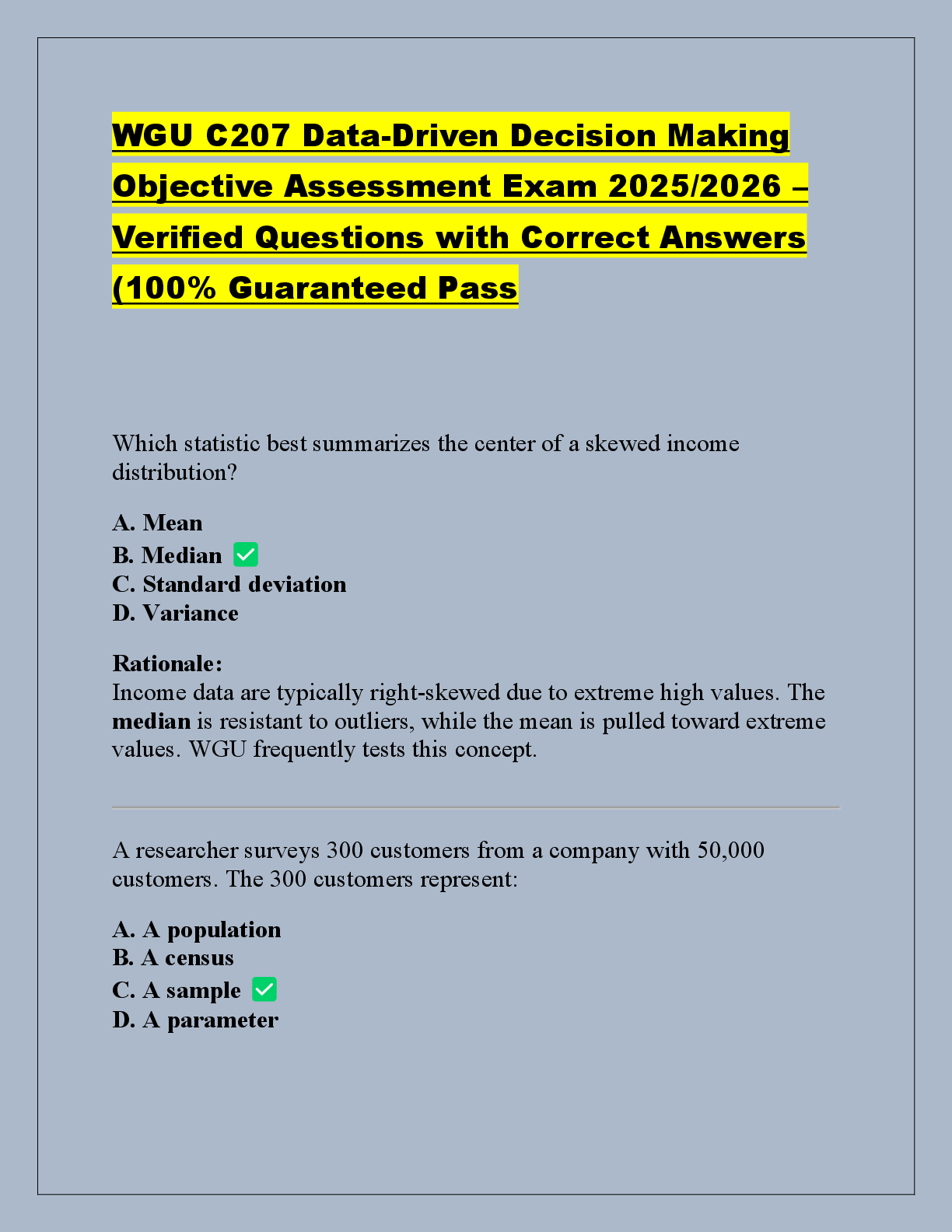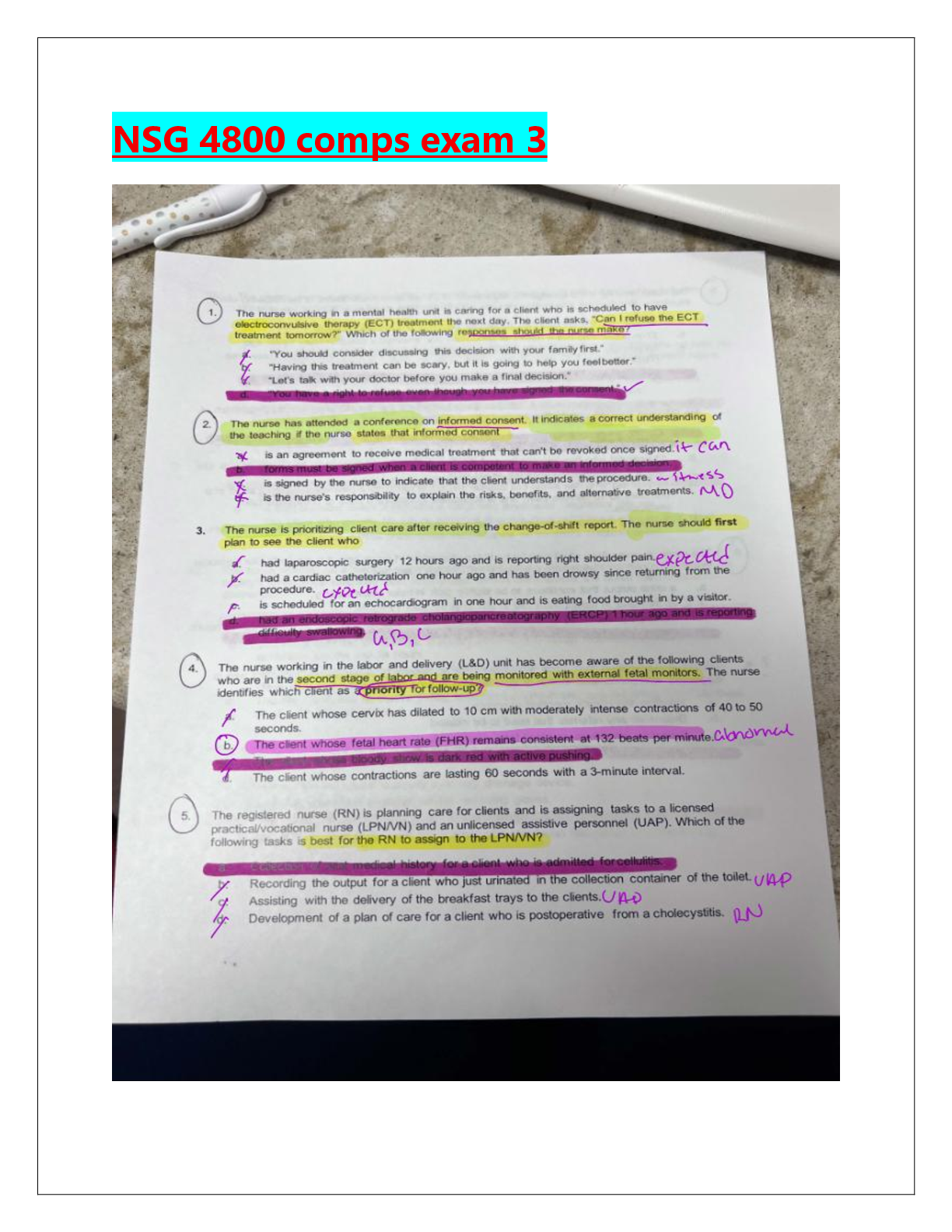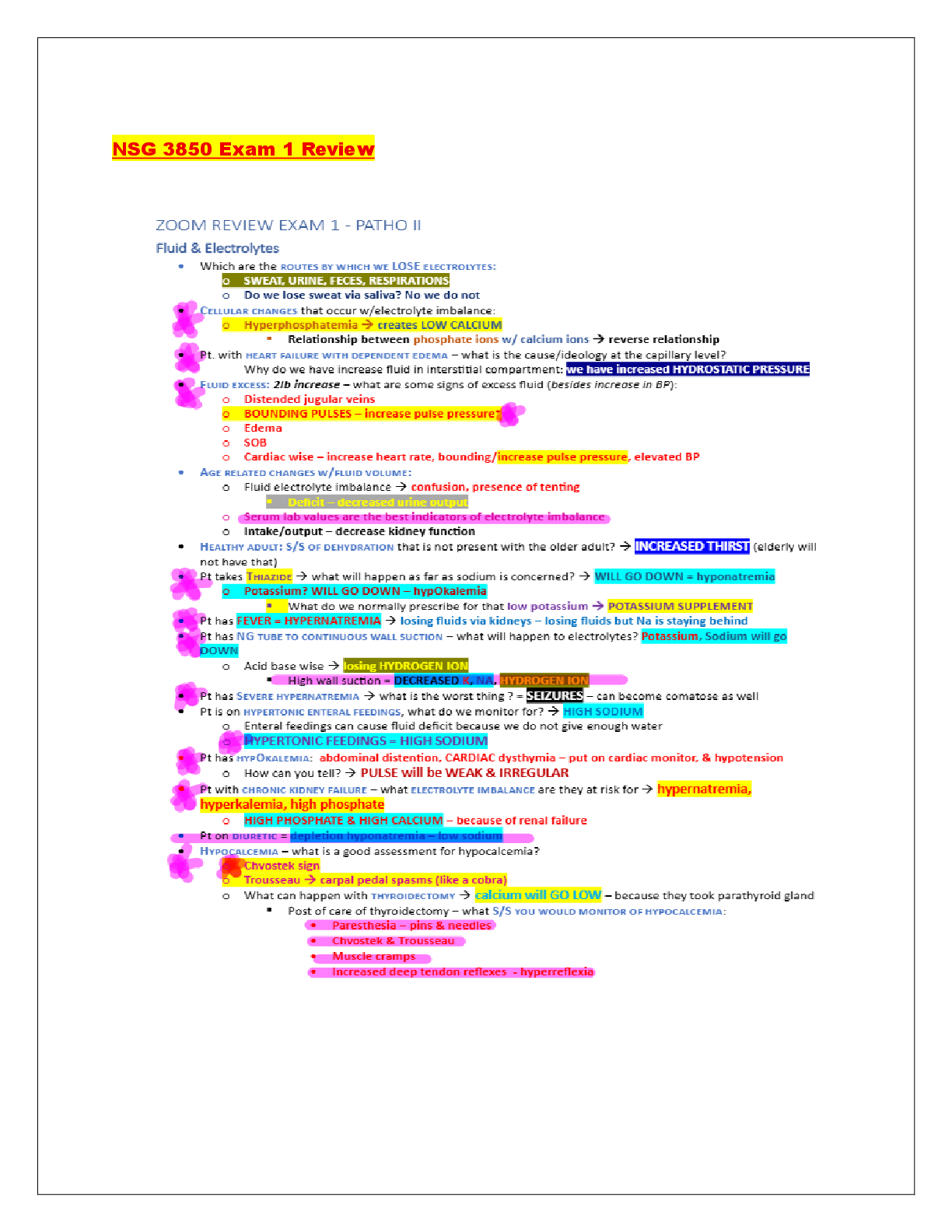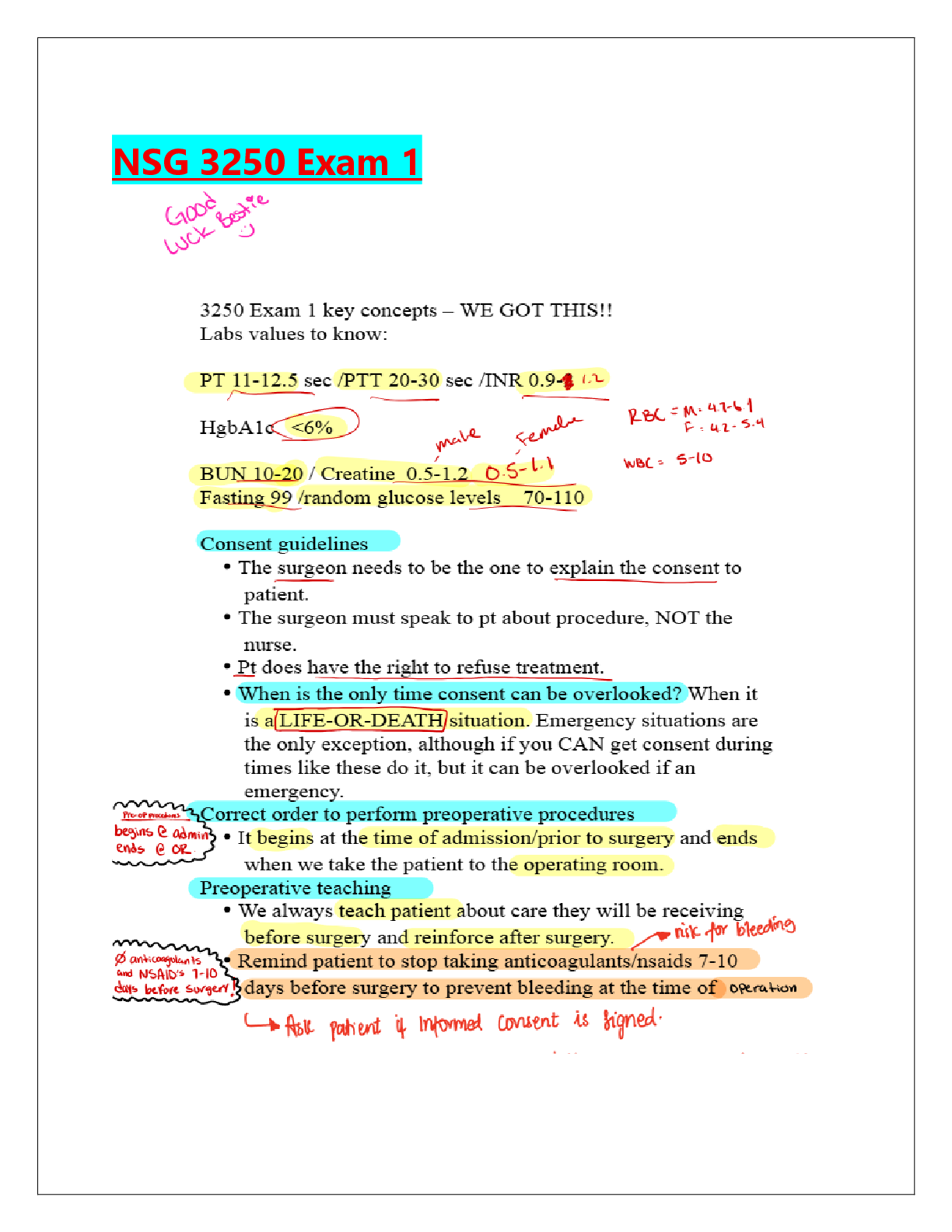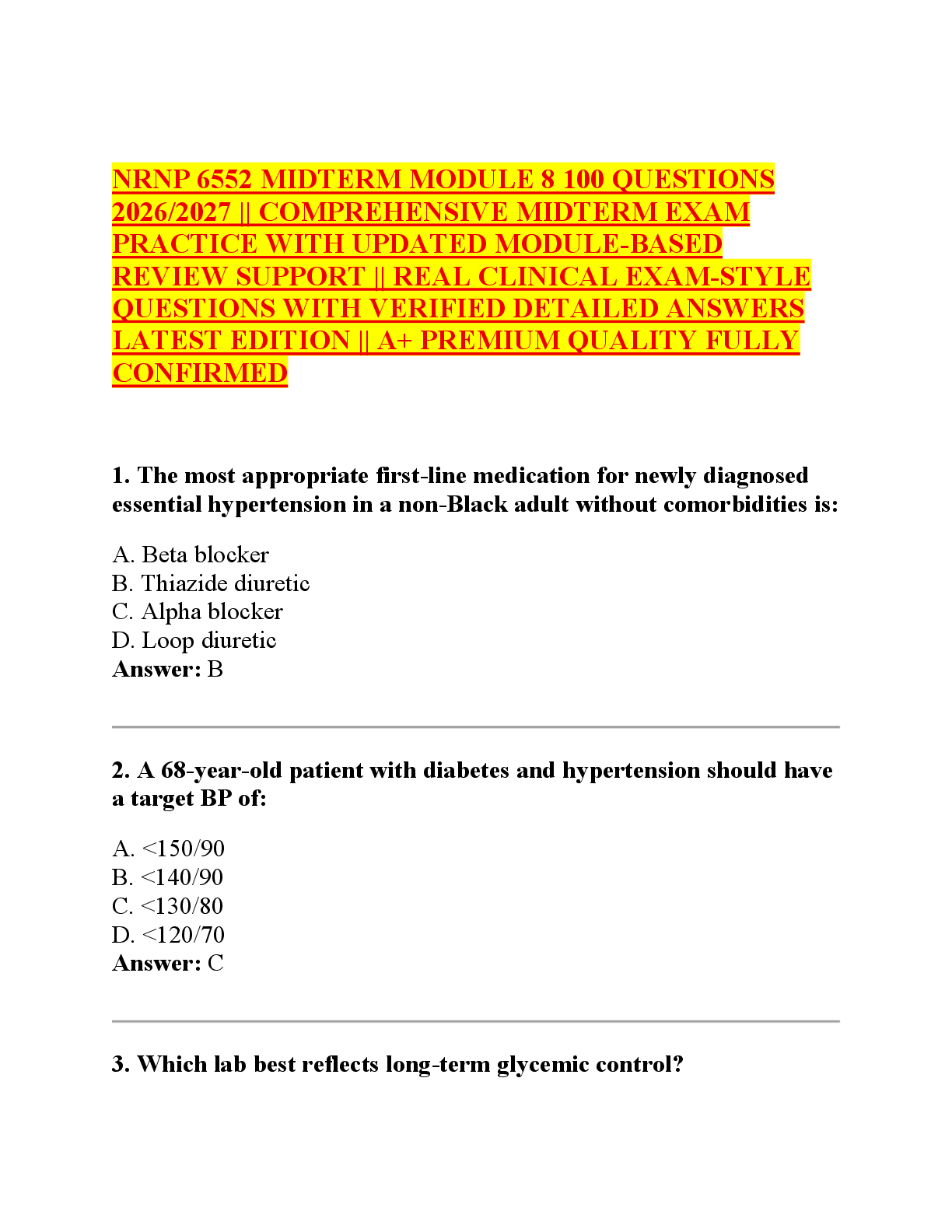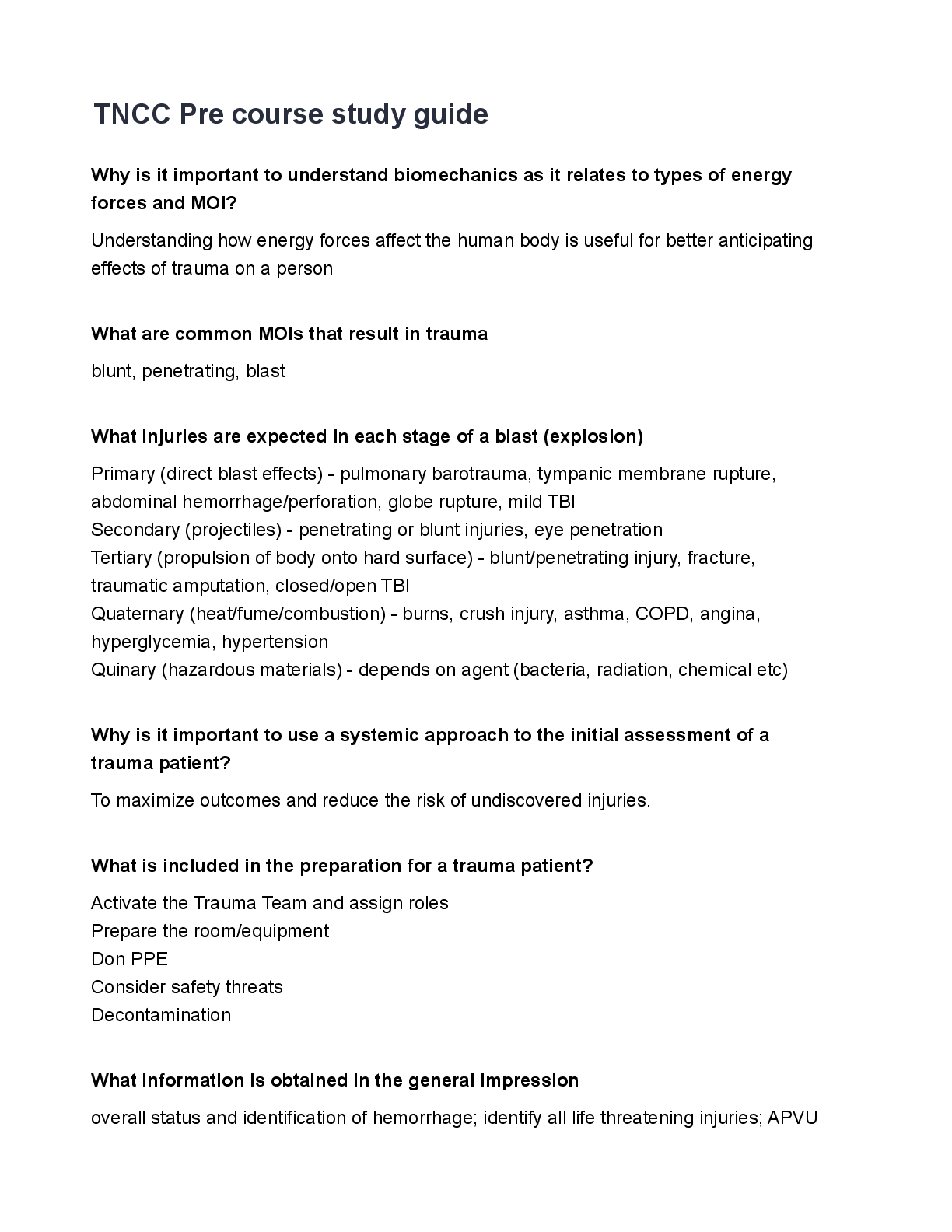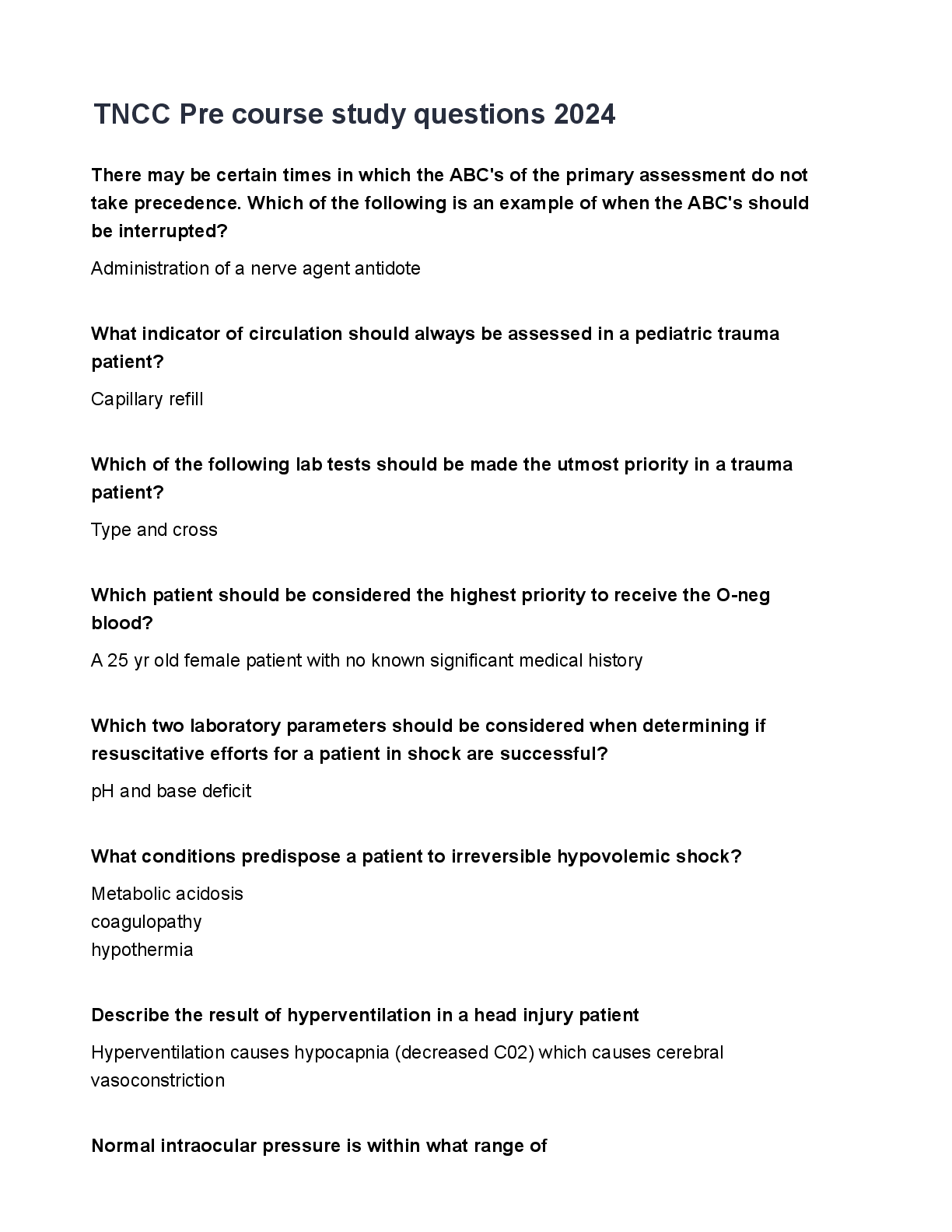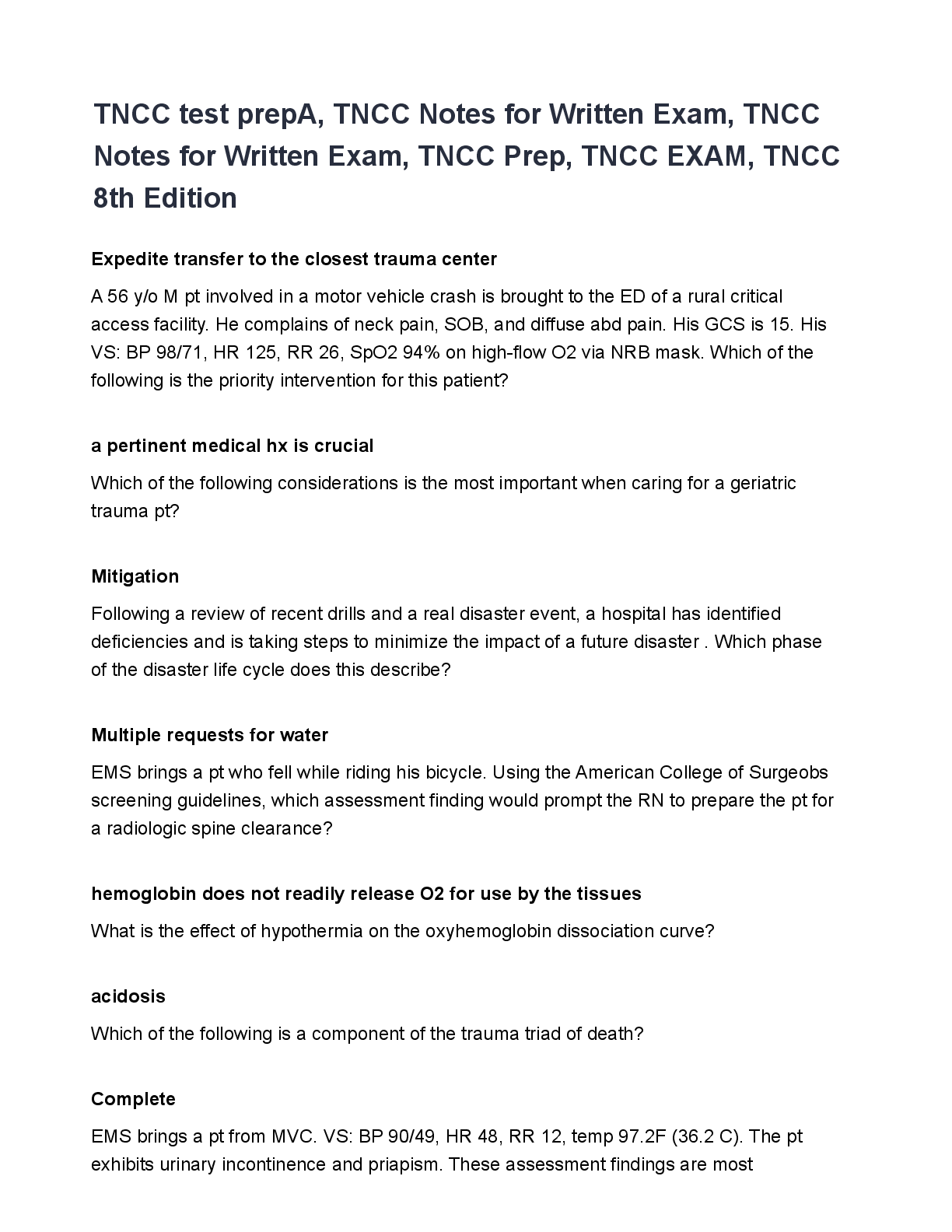NURS 6550 MIDTERM EXAM QUESTIONS AND ANSWERS
Document Content and Description Below
Question 1 1 out of 1 points The AGACNP is caring for a patient who is quite ill and has developed, among other things, a large right sided pleural effusion. Thoracentesis is sent for pleural fluid ... analysis. While evaluating the fluid analysis, the AGACNP knows that a fluid identified as a(n) is the least worrisome type. Response Feedback: “A” is the correct answer. A transudate is essentially just water and can occur as a consequence of increased hydrostatic pressure in the pulmonary vessels. It typically implies that the some condition has produced an imbalance in colloid-hydrostatic pressures, such as CHF or hypoalbuminemia. While it can represent a serious problem, it may also represent a transient imbalance. Conversely, “B” is not correct as an exudate has more protein in it and implies a condition characterized by protein leaking from vessels, such as a malignancy or some serious systemic stressor. “C” is not correct—a chyliform effusion is characterized by fat and indicates a pathology causing massive triglyceride degradation. “D” is not correct as a hemorrhagic effusion is blood and typically means traumatic injury. Question 2 1 out of 1 points Differentiating vertigo from near-syncope and ataxia is one of the goals of history-taking when a patient presents as “dizzy.” The AGACP knows that vertigo is the problem when the patient reports the primary symptom as: Response Feedback: “A” is the correct answer. Dizzy is a layperson’s term and can mean many different things to patients and health care providers. When the patient identifies the primary symptom as a sense of spinning this supports vertigo, which is usually an inner ear problem. This versus ataxia which is neurologic or near-syncope which may be cardiac, neurological, or neurocardiogenic. “B” is not correct—this may occur with vertigo, but when it is the primary symptom it is most likely ataxia and neurological causes should be considered. “C” is not correct as coincident nausea is not specific and can occur with any of these complaints. “D” is not correct as it is also not specific; while ataxia cannot occur when supine near-syncope can. Question 3 1 out of 1 points Mr. Banks has been admitted for surgical resection of a metastatic tumor, during surgery it is discovered that he has widespread, diffuse metastasis throughout the abdomen. Surgery is no longer an option, and his oncologist says that chemotherapy is unlikely to produce any meaningful benefit. Mr. Banks is concerned that his sons will not support a transfer to comfort care. The AGACNP advises that he: Response Feedback: “B” is the correct answer. If there is any concern about disagreement among family members, or any concern at all that a patient’s wishes will not be carried out, the best action is to ensure that there is a clearly defined legally executed document. “A” is not correct. Living wills are not legally enforceable documents and when dissention arises among family members they may not be carried out. “C” is not correct - while the patient should arrange for his care as long as he is capable of doing so, if questions arise at such a time that he is not capable of answering his next of kin will need to do so. “D” is not correct -- identifying the proxy is not enough without assigning legal rights and responsibilities. While “A,” “C,” and “D” should all be done and will support his care, the only way to ensure that one’s wishes are carried o [Show More]
Last updated: 1 year ago
Preview 1 out of 42 pages
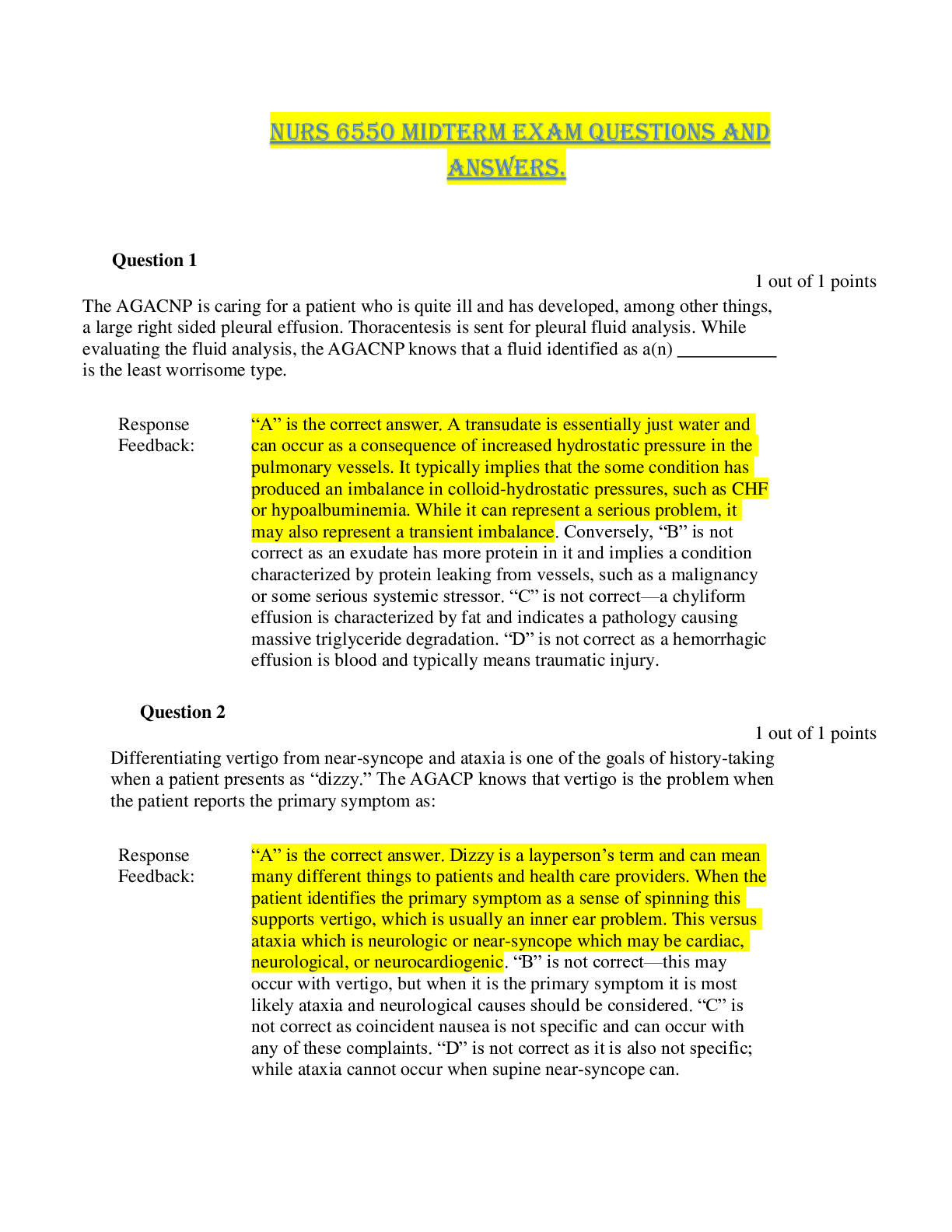
Buy this document to get the full access instantly
Instant Download Access after purchase
Buy NowInstant download
We Accept:

Also available in bundle (1)
Click Below to Access Bundle(s)

NURS 6550 MIDTERM AND FINAL EXAM PACKAGE BUNDLE OFFER
NURS 6550 MIDTERM EXAM QUESTIONS AND ANSWERS NURS 6550 FINAL EXAM – WALDEN UNIVERSITY 2023/2024
By FUTURE NURSE 1 year ago
$50.5
2
Reviews( 0 )
$40.00
Can't find what you want? Try our AI powered Search
Document information
Connected school, study & course
About the document
Uploaded On
Apr 03, 2024
Number of pages
42
Written in
All
Additional information
This document has been written for:
Uploaded
Apr 03, 2024
Downloads
0
Views
71



